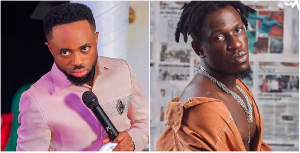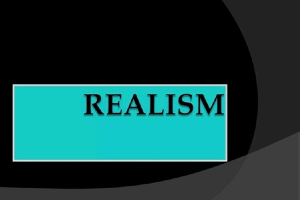The minister-designate for Finance, Ken Ofori-Atta has maintained that of all the campaigns to get the rights of the Lesbian, Gay, Bisexual, Transgender, Queer (LGBTQ+) accepted in the country, the most lasting legacies are our cultures and our traditions.
He said that the eventual decision by the nation on the matter will be done in line with what will serve the development of its people, considering our sociology.
Ken Ofori-Atta was responding to a question by Edwin Nii Lante Vanderpuye, the Member of Parliament for Odododiodio and a member of the Committee on what his take is with regards the possibility of donor organizations requesting that the country accepts the LGBTQ+ before it supports the country.
"First of all, I'm not sure that it's been established as a conditionality but truly, for example, if you look at the decision that the president took with the termination of PDS in which $190 million had to be left on the table, I think that our sociology and our traditions, are the most important endearing legacies that we have and so we'll make decisions that suit our Ghanaians purpose so that we can develop in the way we want to develop," he explained.
Background
Before now, many of the president's appointees who appeared before the Appointments Committee of Parliament shared their perspectives on the rights of the LGBTQ+.
The four, Shirley Ayorkor Botchwey, Minister for Foreign Affairs and Regional Integration; Sarah Adwoa Safo, Minister for
Gender, Children and Social Protection; Godfred Dame, for Justice and Attorney General; and Kojo Oppong Nkrumah, Minister for
Information re-emphasized the stance of the government that it will not to give room for any such discussions to take place.
But, the response given by the Gender minister-designate, Adwoa Safo, seems to have been the most deep-cutting, if that description suffices, seeing
that social media went agog on her comments.
Here is how the minister-nominees responded to the subject during their vetting:
Shirley Ayorkor Botchwey
Shirley Ayorkor Botchwey when answering a question during her vetting on Thursday, February 11, 2021, stated that Ghana’s laws clearly
criminalize the practice.
She stressed that Ghana is a sovereign country and has its own laws that its citizenry must abide by regardless of the relationship the country has
established with other countries.
“Ghana is a sovereign country but as part of our foreign policy we engage countries all over the world; America is one of our strongest friends. But in this country, we have laws. And our laws work and must work.
“So, in spite of what somebody will say and in this case President Biden, the laws of Ghana criminalizes on unlawful carnal knowledge and therefore
the laws of Ghana definitely are supreme and that is what we all adhere to,” she noted.
Godfred Dame
The nominee said that the provisions of the Criminal Offences Act does not offend the Constitution at all and there are cultural rights recognized by
the constitution.
In his personal view, he said that "it is only when the laws are applied in a way discriminatory of a particular group of people, that you cannot assert
unconstitutionality. I take the view that the decision of the Supreme Court in the case of James Kwabena Bomfeh and the Attorney General on the
National Cathedral itself is an affirmation of the fact that even though there are a multiplicity of religions in the country, any decision by a President to promote a particular religion is not discriminatory in the same way any practice of a people which seeks to promote its customs and values cannot be deemed to be discriminatory and for that matter, the section of the Criminal Code is not discriminatory at all.
"I think what is required is a free society that will not necessarily victimize persons but that should not be misconstrued to mean that the state cannot put in place certain laws which protect its customs and traditions of the people.”
Sarah Adwoa Safo
In her response to the question, she said, “Mr Chair, the issue of LGBT is an issue that when mentioned, it creates some controversy but what I want
to say is that our laws are clear on such practice. It makes it criminal. Section 104 of the Criminal Code prohibits one from having unnatural carnal
knowledge with another person. So, on the issue of its criminality, it is non-negotiable.
She continued that, “On the issue of our cultural acceptance and norms, these practices are also frowned upon. So, for me, these are two distinct
clarities on the matter and that is what I strongly stand for,” she explained.
Kojo Oppong-Nkrumah
The minister-designate for Information believes that a more radical approach should be adopted: develop a legislation barring the advocacy of
LGBTQ activities.
According to him, given the current advocacy around the legalization of homosexuality in the country, the country needs to consider passing a law
that tackles its promotion because the practice in itself is culturally unacceptable and goes contrary to section 104 of the Criminal Code, 1960.
“Customary law frowns on LGBT activities. People say despite the criminal code on the general position of customary law, it is just mere expression,
they are just advocating for it but if you ask me about law and background, I will say that is when somebody like me will argue that then we should
be able to contemplate legislation in the interest of public morality which will not be against the constitution but we will now say that you cannot
advocate for and promote LGBT activities in this country,” he averred.
General News of Thursday, 25 March 2021
Source: www.ghanaweb.com













